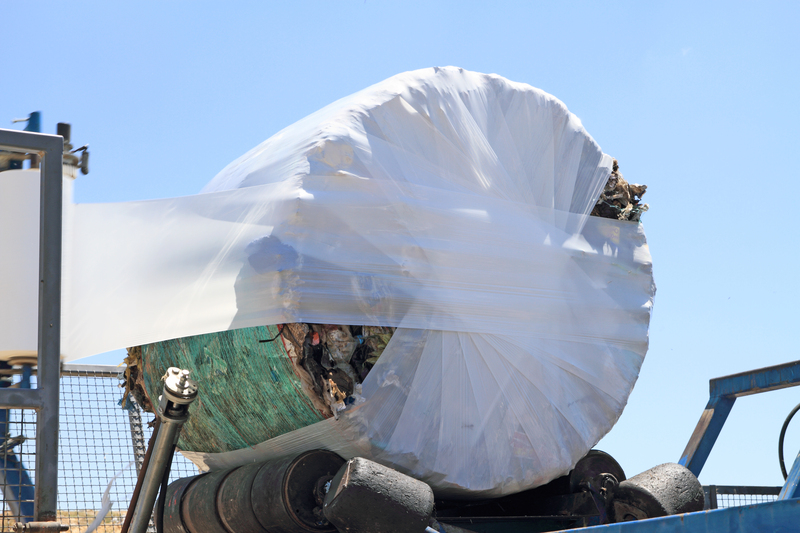Best Practices for Office Waste Disposal
Posted on 14/09/2024
Effective waste management is a critical aspect of any business operation, directly affecting the environment and the company's sustainability metrics. As offices generate a considerable amount of waste, from paper and plastics to electronic waste, companies must adopt best practices to ensure responsible disposal. This article delves into the best practices for office waste disposal, aiming to guide companies toward more sustainable operations.
Understanding Office Waste
Before diving into the best practices, it's essential to understand the types of waste typically produced in an office setting.
1. Paper Waste: This constitutes a significant portion of office waste, including printed documents, packaging materials, and old files.
2. Plastic Waste: Items such as water bottles, food packaging, and office supplies contribute to this category.
3. Electronic Waste (E-Waste): Old computers, printers, mobile devices, and other electronic equipment fall under e-waste.
4. Organic Waste: Food leftovers from employee lunches and biodegradable packaging materials.
5. Miscellaneous Waste: Other waste materials that don't fit into the above categories, such as broken furniture.

Best Practices for Office Waste Disposal
Implement a Waste Segregation System
One of the most fundamental steps in proper waste management is waste segregation. By separating waste at the point of disposal, companies can facilitate recycling and ensure hazardous waste is treated appropriately.
1. Label Bins Clearly: Use color-coded bins to separate recyclables (paper, plastics, metals) from non-recyclables and e-waste. Clear labeling ensures employees dispose of waste correctly.
2. Provide Separate E-Waste Bins: E-waste should never be mixed with regular trash due to its toxic components. Designate specific bins for electronic waste.
Reduce Paper Usage
Paper waste can be significantly reduced through several strategies.
1. Go Digital: Encourage a paperless environment by utilizing digital tools for communication, file storage, and project management.
2. Double-Sided Printing: When printing is necessary, set printers to default double-sided printing to halve the amount of paper used.
3. Reuse Single-Sided Prints: Collect single-sided printouts and use them as scrap paper for notes and drafts.
Promote Recycling
Recycling is a crucial aspect of waste management, turning waste materials into new products and reducing the need for raw materials.
1. Set Up a Recycling Program: Partner with local recycling services to implement an effective recycling program in your office.
2. Educate Employees: Conduct training sessions and provide informational materials to educate employees about recyclable materials and proper disposal methods.
3. Monitor and Report: Track recycling rates and report progress to employees to keep them motivated and aware of the impact of their efforts.
Manage E-Waste Responsibly
Electronic waste contains hazardous materials that can harm the environment if not disposed of correctly.
1. Use Authorized Recyclers: Partner with certified e-waste recyclers who follow stringent guidelines for disposing of electronic equipment.
2. Data Security: Ensure all data is securely erased from devices before they are recycled or donated.
3. Donations and Trade-Ins: Consider donating functional electronics to schools or non-profits or trade them in for newer models.
Implement a Composting Program
Organic waste, such as food scraps, can be composted to reduce landfill waste and create useful compost for gardens.
1. Set Up Compost Bins: Place compost bins in kitchen areas to collect food waste.
2. Partner with Local Farms: Some farms and community gardens accept compostable materials and can be a great way to manage organic waste.
3. Educate About Composting: Provide information about what can and cannot be composted to ensure the compost is of high quality.
Conduct Regular Audits
Regular waste audits can provide insights into the types and quantities of waste being produced and help identify areas for improvement.
1. Analyze Waste Streams: Conduct audits to examine how much waste is being generated and the effectiveness of current waste management practices.
2. Set Goals: Use audit data to set realistic waste reduction goals and track progress.
3. Engage Employees: Involve employees in the audit process to ensure they understand the importance of waste management.

Encourage Reuse and Upcycling
Reusing materials and upcycling can reduce the amount of waste headed to landfills.
1. Promote Reusable Items: Encourage the use of reusable mugs, water bottles, and bags.
2. Donate Unused Supplies: Rather than discarding unused office supplies, donate them to schools or non-profits.
3. Upcycle Furniture: Consider upcycling old office furniture instead of replacing it, which can save money and resources.
Adopt Sustainable Procurement Practices
The type of products purchased can significantly impact the amount of waste generated.
1. Choose Recyclable Products: Opt for products made from recyclable or biodegradable materials.
2. Buy in Bulk: Purchase supplies in bulk to reduce packaging waste.
3. Work with Sustainable Vendors: Partner with vendors who have robust sustainability practices.
Create a Green Office Culture
Sustainable waste management practices should be part of the broader company culture.
1. Leadership Buy-In: Ensure company leaders are committed to sustainability and lead by example.
2. Employee Incentives: Offer rewards and recognition for employees who actively participate in waste reduction efforts.
3. Regular Communication: Keep the topic of waste management at the forefront through regular updates, meetings, and educational materials.
Conclusion
Proper office waste disposal is not only about compliance with regulations but also about fostering a culture of sustainability within the workplace. By implementing best practices such as waste segregation, reducing paper usage, promoting recycling, responsibly managing e-waste, and encouraging reuse, companies can significantly reduce their environmental footprint. Conducting regular audits, adopting sustainable procurement practices, and creating a green office culture further reinforce these efforts. In today's world, where environmental impact is a pressing concern, effective waste management practices are essential for any forward-thinking organization.
Latest Posts
Environmental Harm from Poor Waste Practices

 020 3744 5548
020 3744 5548










